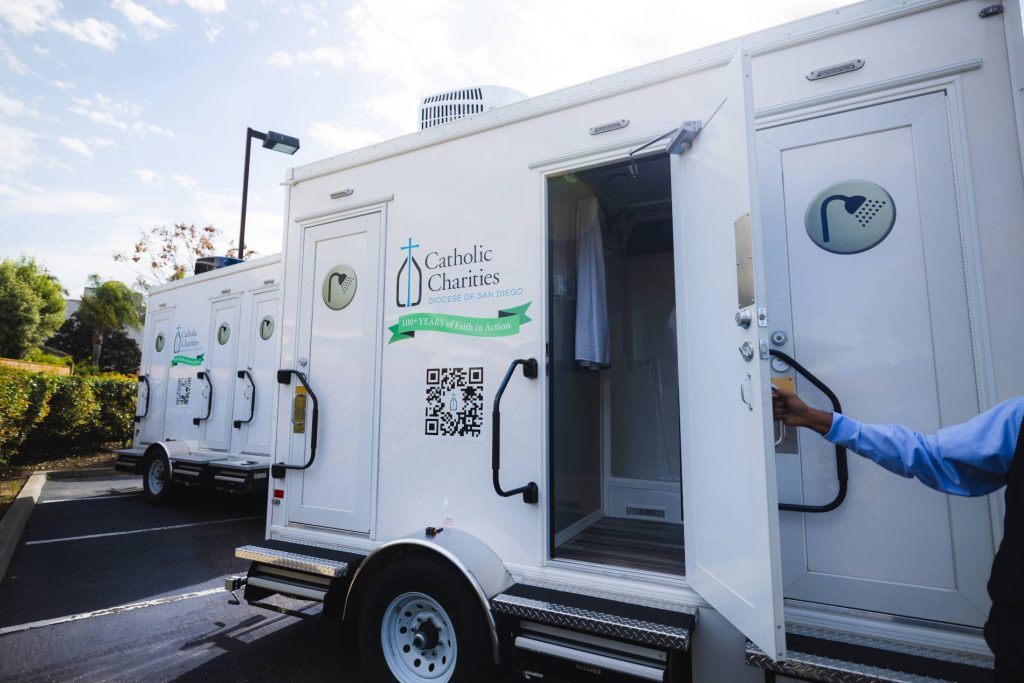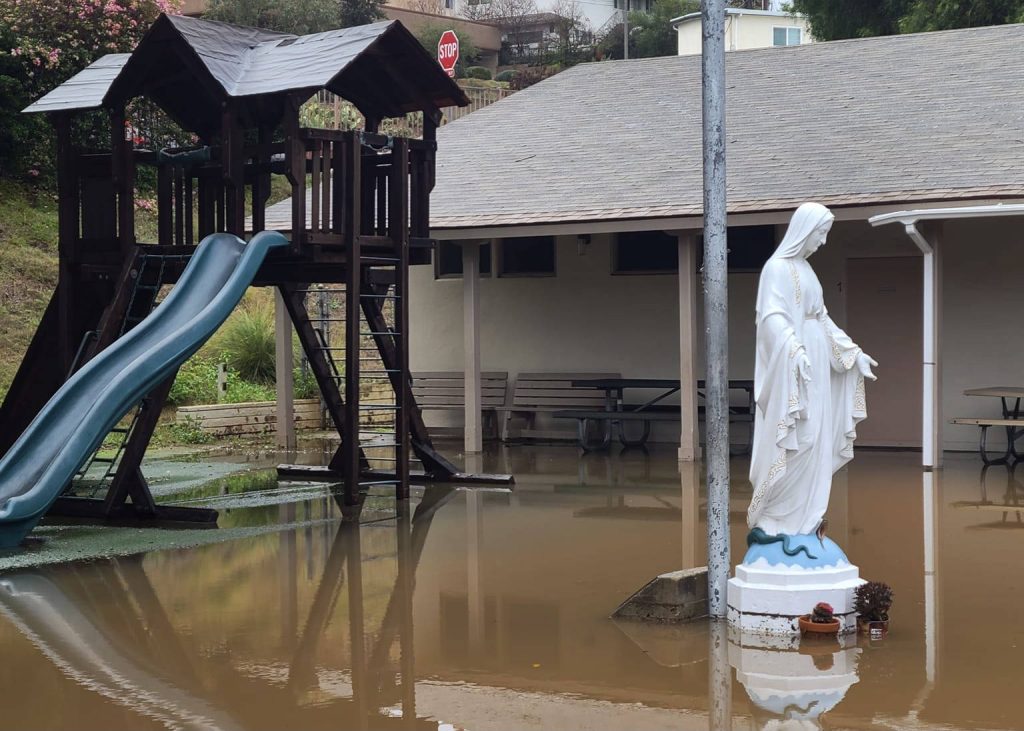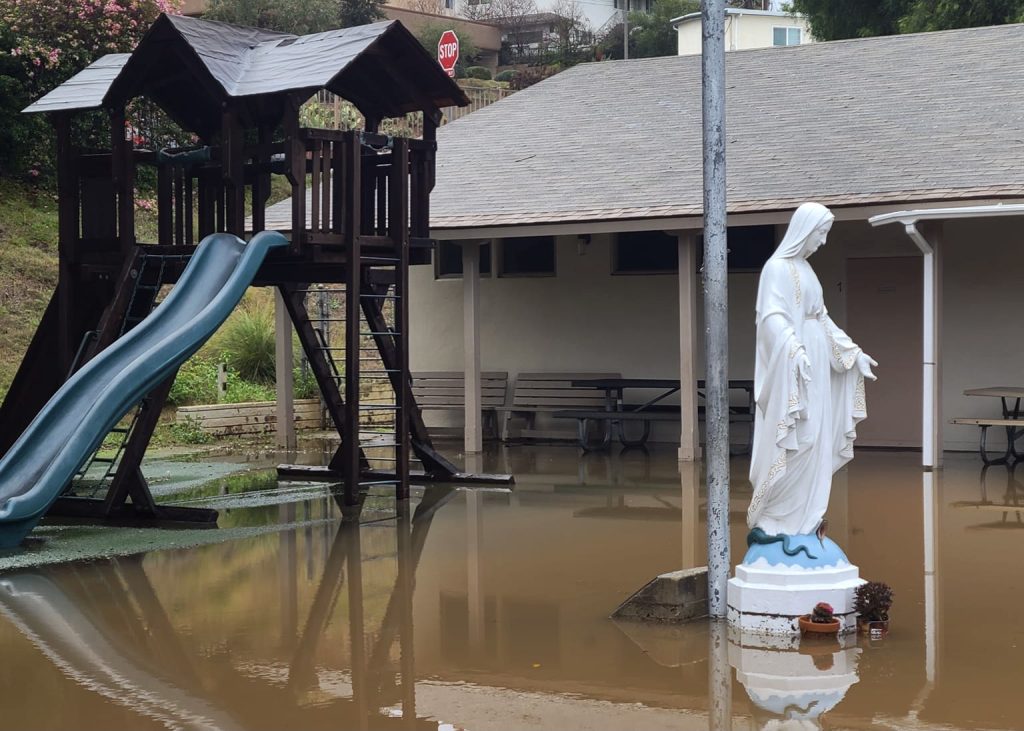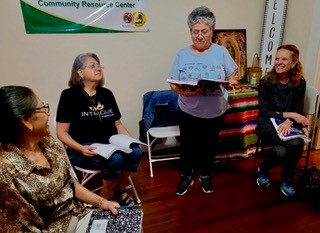EL CENTRO — In normal times, staff from the Senior Nutrition Program deliver about 170 meals per week to homebound individuals across the Imperial Valley. That number soared to 670 deliveries a week during the pandemic.
“That is the disheartening truth in one of the country’s poorest counties — and hardest hit by the pandemic,” said Appaswamy “Vino” Pajanor. He leads Catholic Charities, Diocese of San Diego, which operates the food program that provides low-cost or free meals to people age 60 and older with limited income.
Yet even as the number of home deliveries spiked, the total number the program served dropped in the last year, from about 1,600 to 1,100 at the end of May.
One of the reasons?
So many seniors died of the coronavirus, said the program’s manager, Apolinar “Polo” Salazar.
Of the 735 COVID-19 related deaths in Imperial County since March 2020, 81 percent were people age 60 and up, according to the Imperial County Public Health Department.
The nutrition program provided a lifeline to individuals such as Billie Pope and Anthony Souders. Not only do the staff deliver nutritious meals to their homes, they are often the only regular human contact the seniors have, all the more important in the isolating era of COVID.
On a recent day, Souders, who turned 77 on June 9, reflected on the difficult road that led him to El Centro, and left him needing food assistance.
Originally from Philadelphia, he became a Marine and was stationed at Camp Pendleton for years. After the service, Souders began a business selling restaurant equipment based in Los Angeles near what is now the Staples Center.
Later, he decided to move to Mexico. There, he said he had a dangerous run-in with some bad men, who assaulted him one day, leaving him bloody, broken and missing teeth.
He ended up living in El Centro. While dining at a restaurant in Brawley, his car was stolen. Having just moved, as the car went so went the rest of his belongings, including his clothing and money.
His bad luck continued.
In El Centro, he fell on uneven sidewalk, injuring his back and splitting his left knee cap. On another occasion, he forgot to use his cane and fell, fracturing his left shoulder.
Even though he’s a former chef, Souders can’t stand long enough to cook anymore. That’s where the food program came in. He does not hesitate to describe its impact.
“I can’t tell you how great it is, it’s so great it’s unreal,” he said of the food delivered to him three days a week.
“The food is perfect because it’s not too much, it’s not too small. The amount of food is just perfect,” he said. “It’s always around 10 o’clock. My (delivery) driver is so nice and he’s always on time. Everything is beautiful.”
Souders said he is thankful to Catholic Charities, Christ Community Church and others in the Valley that have helped him reset his life after the series of devastating events he’s endured.
“The people of the Imperial Valley have taken care of me.”
Billie Pope, another client of the program, also has endured a string of devastating setbacks. The Catholic Charities’ CEO, Pajanor, shared her story recently through his organization’s website.
“She is an example of a quiet crisis in America that was growing before COVID and has since accelerated during the pandemic: middle-class hunger,” he wrote.
Pope is 68 years old and became a widow a decade ago. She lives by herself in Holtville on her late husband’s pension. That income bumps her just above the low-income threshold for many assistance programs and disqualifies her from certain aid, she said.
Her son died at the age of 19, and she has a grown daughter who only recently began to come back into her life. Pope said she had no one to care for her for a long while.
Even the neighbors she met in Holtville when she first moved to the Valley from Oakland decades ago had moved away, leaving new neighbors who keep mostly to themselves.
She used to manage a video store until she had a car accident, plunging over a 300-foot cliff, breaking her back, her neck, and leaving her with partial vocal cord paralysis. As she attempted to recover on her own at home, she fell one night when getting up from falling asleep in her chair, breaking her femur and knee.
Afterward, Pope couldn’t even reach her bed due to its height, so she slept on her couch nightly — “just me and my cats” — for about two years as she tried to recuperate. She eventually found out she also had a broken hip, she said.
“I had no help whatsoever. Nothing,” she said. “There was no food in the house. I usually keep a very nice pantry full of food and that had been depleted.”
She lost 40 pounds from undernutrition in an 18-month period. She resorted to eating some of her cat food at times.
As she underwent physical therapy, she was referred to the county’s Area Agency on Aging, which led her to the nutrition program.
“It seemed like all of a sudden someone came out of the woodwork and said, ‘Hello Billie, we’re here,’” she said, faux-knocking as if on a door, in a video message. “‘We’re here to help you.’”
She began to get meals delivered to her home and developed a nice friendship with the former driver, she said.
“I’ve always believed in God, in Jesus His Son, and I know He’s there again in my life where I thought he had disappeared for a very long time,” Pope said. “It’s funny how (God) appears in different forms, in different people, (and) in different charities.”
Her broken bones have mended, she is able to walk without using a walker, and has been partaking in telephone counseling, she said. She has reconnected with her daughter. She has even ventured out “way more than before” to go to doctors’ appointments, shopping, or to a movie theater.
She said though she usually donated the $2 suggested donation per meal, she has had financial hardship in the past two months. Yet, Catholic Charities has continued to deliver meals to her.
“That is a huge plus in my life.”
The state lifted most COVID restrictions on June 15. The program’s manager, Salazar, said his team wants to re-open as soon as possible the other part of the service the agency traditionally provides, “congregate meals.” These are served at sites where seniors gather daily or weekly, depending on location, for nutritious food and warm friendship.









